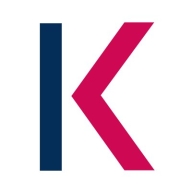

Knowage and Teradata are competing products in the data analytics and business intelligence space. Knowage offers stronger pricing and support, while Teradata stands out with superior functionalities, making it more attractive for those seeking advanced features.
Features: Knowage provides robust integration capabilities with diverse data sources, exceptional flexibility in reporting, and an open-source model for extensive customization. Teradata, known for advanced analytics capabilities and scalability, suits large enterprises with complex analytics needs. The distinction stems from Knowage's open-source accessibility and Teradata's analytical strength.
Room for Improvement: Knowage could enhance its scalability to match larger enterprise needs, improve its user interface for broader appeal, and expand its analytical functionalities. Teradata might focus on simplifying its deployment process to attract smaller businesses, reduce costs for budget-conscious organizations, and bolster its open-source community support for wider adoption.
Ease of Deployment and Customer Service: Knowage's open-source framework supports an uncomplicated deployment process with efficient customer support for integration assistance. Teradata offers a more complex deployment suitable for resource-equipped organizations, with adept customer service for extensive analytics solutions.
Pricing and ROI: Knowage's low initial costs, due to its open-source nature, provide appealing ROI for cost-sensitive enterprises. Small to medium businesses find its pricing structure favorable. Teradata, with comprehensive features and advanced analytics, demands a higher investment, delivering significant ROI for large-scale organizations needing extensive data analysis.
| Product | Market Share (%) |
|---|---|
| Teradata | 0.9% |
| Knowage | 0.7% |
| Other | 98.4% |

| Company Size | Count |
|---|---|
| Small Business | 7 |
| Midsize Enterprise | 6 |
| Large Enterprise | 6 |
| Company Size | Count |
|---|---|
| Small Business | 28 |
| Midsize Enterprise | 13 |
| Large Enterprise | 52 |
Knowage (formerly SpagoBI) has a 14-years history. The actual release is the 6.3.
Knowage offers FULL ANALYTICAL CAPABILITIES, with a special focus on big data analytics and comprehensive support to rich and multi-source data analysis. Knowage provides different modules, each one focused on a specific domain but mutually combinable (Big Data, Smart Intelligence, Enterprise Reporting, Location Intelligence, Performance Management, Predictive Analysis). Moreover, Knowage is an OPEN SOURCE solution: the source code is freely accessible, everyone is allowed to join the community and build the own business solution to ensure strategic decision-making and improved productivity.
Knowage suite is supported by Engineering Group, the leading Italian software and services company, with about 10,000 people and more than 50 offices worldwide. Maintenance and support services (such as trainings, migration support, proof-of-concepts, etc) are provided by Engineering Group (KNOWAGE Labs) under subscription.
Teradata is a powerful tool for handling substantial data volumes with its parallel processing architecture, supporting both cloud and on-premise environments efficiently. It offers impressive capabilities for fast query processing, data integration, and real-time reporting, making it suitable for diverse industrial applications.
Known for its robust parallel processing capabilities, Teradata effectively manages large datasets and provides adaptable deployment across cloud and on-premise setups. It enhances performance and scalability with features like advanced query tuning, workload management, and strong security. Users appreciate its ease of use and automation features which support real-time data reporting. The optimizer and intelligent partitioning help improve query speed and efficiency, while multi-temperature data management optimizes data handling.
What are the key features of Teradata?
What benefits and ROI do users look for?
In the finance, retail, and government sectors, Teradata is employed for data warehousing, business intelligence, and analytical processing. It handles vast datasets for activities like customer behavior modeling and enterprise data integration. Supporting efficient reporting and analytics, Teradata enhances data storage and processing, whether deployed on-premise or on cloud platforms.
We monitor all BI (Business Intelligence) Tools reviews to prevent fraudulent reviews and keep review quality high. We do not post reviews by company employees or direct competitors. We validate each review for authenticity via cross-reference with LinkedIn, and personal follow-up with the reviewer when necessary.